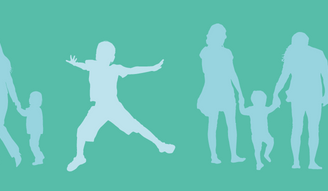Services


1:1 Behaviour Therapy
In 1:1 therapy sessions, I work directly with the client to target skill development across a variety of domains. Parents are always invited to observe or get involved! Siblings and peers may also be included, but the client remains the main focus of the session.


Caregiver Coaching
Research and the NDIA highlight the importance of parent involvement in intervention programs. Thus, parent collaboration is a feature in all of my programs. For early intervention, a structured parent coaching series is offered at intake to build caregivers' capacities to support their children. This series involves a combination of Acceptance and Commitment Training as well as foundational theory and behaviour skills practice.
Positive Behaviour Support Plans


When a child engages in behaviours of concern, we can create a formal document, called a Behaviour Support Plan (BSP), outlining procedures for all team members to implement and support the child. After a collaborative assessment, this document is created which outlines environmental modifications, proactive strategies, reactive strategies, replacement behaviours, and teaching strategies. Direct training is provided to all of the child's team members along with ongoing monitoring and support.
Connect Club (Social Skills)
I enjoy working with educators to help them set learners up for success. I always value the teacher's input and aim to respect what may or may not be feasible in their classroom. I can help design simple yet effective behaviour support plans to better support a child across their school day. I also offer direct behaviour therapy in the school environment.


"Connect Club" is a group therapy program that focuses on developing skills related to social communication, problem-solving, teamwork, and sportsmanship. Skills are targeted within carefully designed play activities and STEM challenges. As a bonus, children get to develop connections with their peers while having tons of fun!
Connect Club's curriculum can be individualised to suit learners from ages 5-12. This service is ideally run in small groups of similar-aged children, however, can be modified for larger classes. At this time, Connect club is only being offered directly to schools and out-of-school hours programs.
School Consultation


Telehealth
Covid-19 taught us how learners can benefit from, and some even prefer, attending therapy online. I enjoy coming up with creative ways to "play" online while working towards our goals.
Telehealth is also a great option for convenient parent coaching sessions. If you live out of range, parent coaching can be offered as a stand-alone program.
Focus Areas for Skill Development
Therapy goals are individualised based on the learner's needs and interests. Below is a sample of skills I may focus on within sessions.


Social & Emotional Learning
Being able to understand your own emotions is the first step in developing this skill and expressing your thoughts, feelings, and needs. Then, we can teach coping strategies to manage the tricky emotions. It's also important to develop perspective-taking and understand that others have emotions, too. Social/Emotional learning should continue throughout our lives. Topics are tailored to each child's needs, age, and personal goals.
Learning-to-learn Skills


Communication is key! Many challenging behaviours occur when a need is not met. Often, clients don't know how to communicate those needs...wouldn't that be frustrating? In collaboration with your child's speech therapist, we can work on goals towards developing your child's communication skills. This may involve a focus on early language development, alternative and augmentative communication (AAC), or just helping someone find the confidence to stand up and speak out for themselves!


School Readiness
Once you've got some basics down, several skills are required to be successful in a classroom. Students need to be able to learn in group settings, attend to speakers, cooperate with peers, have basic academic knowledge, and partake in a variety of activities at a desk. As a child prepares for school, relevant assessments are completed and activities are interspaced throughout play-based learning to prepare for the transition.
Social Skills Support
For early learners, several skills are foundational to subsequent learning. We often call these behaviour cusps or pivotal behaviours. With my early intervention clients, most of the child's goals are targeted through play using Natural Environment Teaching (NET). However, we also aim to find a balance between adult-led play and pure, joyful, child-led play and exploration.


Communication


Client-Led Goal Setting & Behavioural Coaching
For older clients, I aim to help individuals connect with the things they care most about and then learn how to set, break down, and achieve their own short and long-term goals.


Community Access
Achieving individualised goals may include developing relationships with peers in the community, learning how to get a job, or participating in new hobbies. I often accompany clients into the community to practice skills in the moment and set up a plan to work towards indpedendence.


Daily Living Skills
Toilet training, washing your hands, making a snack, tidying up, and catching the bus to go grocery shopping. The list of 'things we gotta do' goes on and on. I can help break down age-appropriate tasks into achievable steps and work towards true independence.
Along with social and emotional learning, sometimes learners need in-the-moment support to practice getting along with their peers. I often visit a learner in their natural group settings to support their progress towards their goals. For example, does your child LOVE to play handball, but has a hard time losing? Are they desperate for a best friend, but having trouble making initial connections? Let's set some goals to work towards social success!


